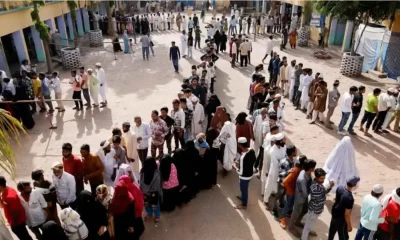India News
“Of his own security, Gill famously said: That’s Sharma’s concern”
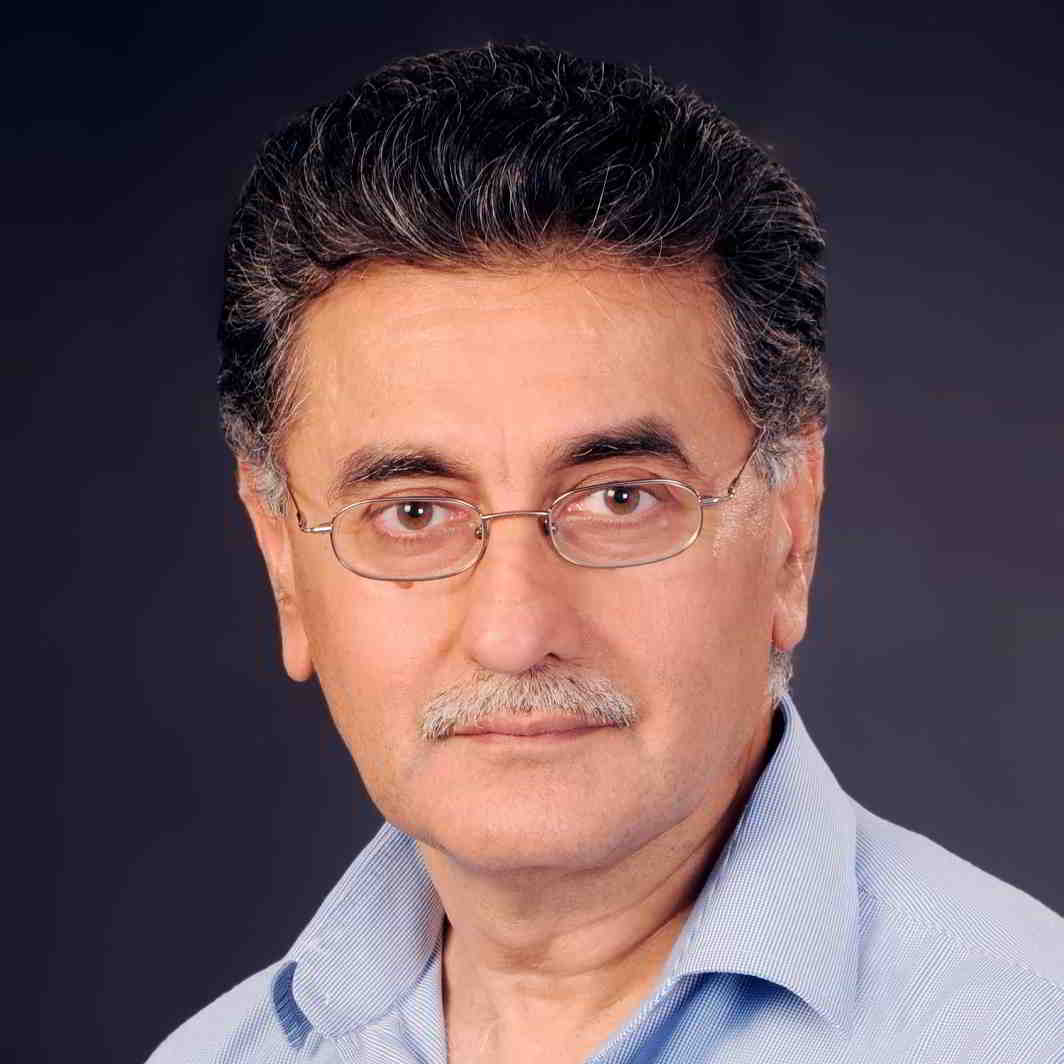
[vc_row][vc_column][vc_column_text]Former director general of Punjab police KPS Gill played a unique role in eliminating Khalistani terrorism in the Punjab in the eighties and early nineties. He was brought to Punjab as Inspector General of Punjab Armed Police at a very difficult period but he won the admiration of the citizens with the success of Operation Black Thunder which freed the Golden Temple in Amritsar of militants. Speaking to Rashme Sehgal, his son-in-law Dr Ajai Sahni, executive director of the Institute of Conflict Management, reminiscences about this dynamic and controversial personality
What is the quality you remember most about KPS Gill?
What I remember most about him is the sheer intensity of his commitment and sense of purpose. Nothing detracted him from what he had set out to do. He had a tremendous ability to focus on his goals. He had clear ideas about the nature and origins of the terrorist challenge in the Punjab and also how it should be tackled. In that sense he was fearless because he spent no time worrying about his own security. When he was once asked whether he was apprehensive about him being attacked by terrorists, his reply was ‘that is Sharma’s concern’. (Sushil Sharma was the officer in charge of his security.) During the period of terrorism in the Punjab, he used to travel for 26-28 days in a month.
This is not to say that he was not a target of terrorist attack. He was targeted endlessly and once came within shooting distance of a group of terrorists who chickened out at the last minute. This is in contrast to both his predecessor and his successor as DG Punjab police. To cite one example, in 1990-91, Gill was transferred to the CRPF in Delhi. The officer who succeeded him was targeted in a bomb attack following which he is known never to have stepped out of his official place of residence during his remaining tenure.
He introduced the whole concept of Operation Night Dominance by which the Punjab police would move around at night patrolling as well as attacking militant. Earlier, the police would barricade themselves in their police station at night but Operation Night Dominance saw them gaining an upper hand against terrorists.
Gill did write about his experiences in tackling militancy in his book Knights of Falsehood and also wrote an extensive paper on this subject titled Endgame in Punjab?
Endgame in Punjab provides details about the overall strategy and tactical changes deployed to defeat militancy in Punjab. His book titled Knights of Falsehood exposes the false version of Sikkhism that was espoused by Akali Dal leaders such as Parkash Singh Badal, Gurucharan Singh Tohra, Bhindarwale and others. The role of the Akalis was shameful but has been largely forgotten today. Militancy spread in the Punjab because of them.
In the last interview Gill gave before his death, he regretted the fact that Indian institutions lacked institutional memory. For example, he highlighted how mistakes made in the 80s in tackling insurgency were being repeated today?
Yes indeed. The Khaslistani movement was brought to an end 22 years ago but the question is what has been the learning curve ? How should we apply principles of counter insurgency especially when this has been dealt with earlier. We need to understand the importance of routine policing and more important, we must also understand the dynamics of a conflict. Apart from a half-day conference on the Punjab experience organised by the Punjab police, not a single meet has been organised in these 22 years at the level of the National Police Academy on how this insurgency was tackled. Today, the theory doing the round is that the situation in Punjab was not so bad but people should not be allowed to forget how serious the situation in the Punjab was. We were close to losing Punjab. Senior politicians used to say we have lost the people and it is only a matter of time before we lose the land.
I must also highlight how the suicide of Ajit Singh Sandhu ( former SSP of Tarn Taran) and persecution of other Punjab police officers who fought insurgency saw him writing at length on this subject and how it was this police which helped to bring Punjab back from the brink.
Mr Gill was critical about the way Operation Blue Star had been conducted by the army?
He was written on this subject. I think for him it was not a question of the army or the police because they had been asked to respond to a political time table. The fact is that the army went in without the assistance of the local intelligence. We must not forget that following Operation Blue Star, militants crossed over and sought Pakistan’s help which they received and which helped start a proxy war that was spearheaded by Pakistan.
One of the reasons why he was able to combat this was because he brought about a unique model of co-operative command. He helped ensure that every officer of a particular rank in the police was in touch with his army counterpart so that there was complete intelligence sharing in a unified command system. They met on a daily basis and the aim of this exercise was very clear that they support each other. It helped construct a level of personal relationships which have not been replicated since. All control rooms were manned by police, army and CPRF officials- no one was kept out of the loop.
He believed the army was a national force and could not be seen fighting the people; the dirty work was left to the cops who had to conduct cordon and search operations. But look at the effect on the ground. No single village with more than three Hindu families was allowed to push these families out of their village. Orders were given to provide protection to the Hindu families and this was done. Militants always want an ethnic separation to occur, a polarisation of the population, because this helps to create greater discord. But this was not allowed to happen in the Punjab.
His greatest regret is that he was not allowed to handle Kashmir. I believe if he had been sent there, the issue would have been resolved by now. He took a demoralised Punjab police and helped to raise their morale. Punjab even during the period of the militancy, right up to the early 2000s remained the second most prosperous state of the country. After the recent Akali rule, it has climbed down to fourteenth position and its per capita income has plunged. Not even the Khalistanis did as much harm as the Akali rule.
Gill received praise for his handling of Operation Black Thunder?
The entire operation has been very well documents. He took two decisions against very strong opposition. The first was to allow the media to watch the entire operation unfold before their eyes. The second was to maintain it as a protracted siege by surrounding them and starving the militants off. Later, when they capitulated, the world got a chance to see just how they had desecrated Harmander Sahib. The terrorists were exposed completely.
I must mention that he was a virtual legend in Assam. He was called in to help quell the riots in Gujarat in 2002. He was called two months after the rioting had started in Gujarat. Before leaving, he asked Captain Amarinder Singh who was then chief minister of Punjab for a contingent of the Punjab police. Singh agreed but the request was turned down by the centre. Again, he had to deal with an extremely demoralised Gujarat police with some of them having colluded in the rioting. Within a week of his arrival, the rioting stopped.
He helped create confidence amongst the Muslims and mobs of petitioners used to be standing outside his office for hours on end. He published the phone numbers of the police officials and told the victims they should talk directly to him. He did not allow people to shirk responsibility. Some police officers who were known for their strong communal views were made in charge of getting the mosques cleaned.
He majored in English literature and had a great love of both English and Urdu poetry?
Yes. He had a phenomenal memory and could recite poems of both the great and minor poets. He thought it was his love of literature which helped provide him insights into human nature and helped him understand the wide range of responses on how people respond to different situations.[/vc_column_text][/vc_column][/vc_row]
2024 Lok Sabha Elections
Lok Sabha Elections: Voter turnout 62.02% in Tamil Nadu till 5pm
The voter turnout in Tamil Nadu stands at 62.02%, while Uttar Pradesh records a turnout of 57.5%. Meanwhile, in West Bengal, voter participation surges to 77.5% as of 5 pm.
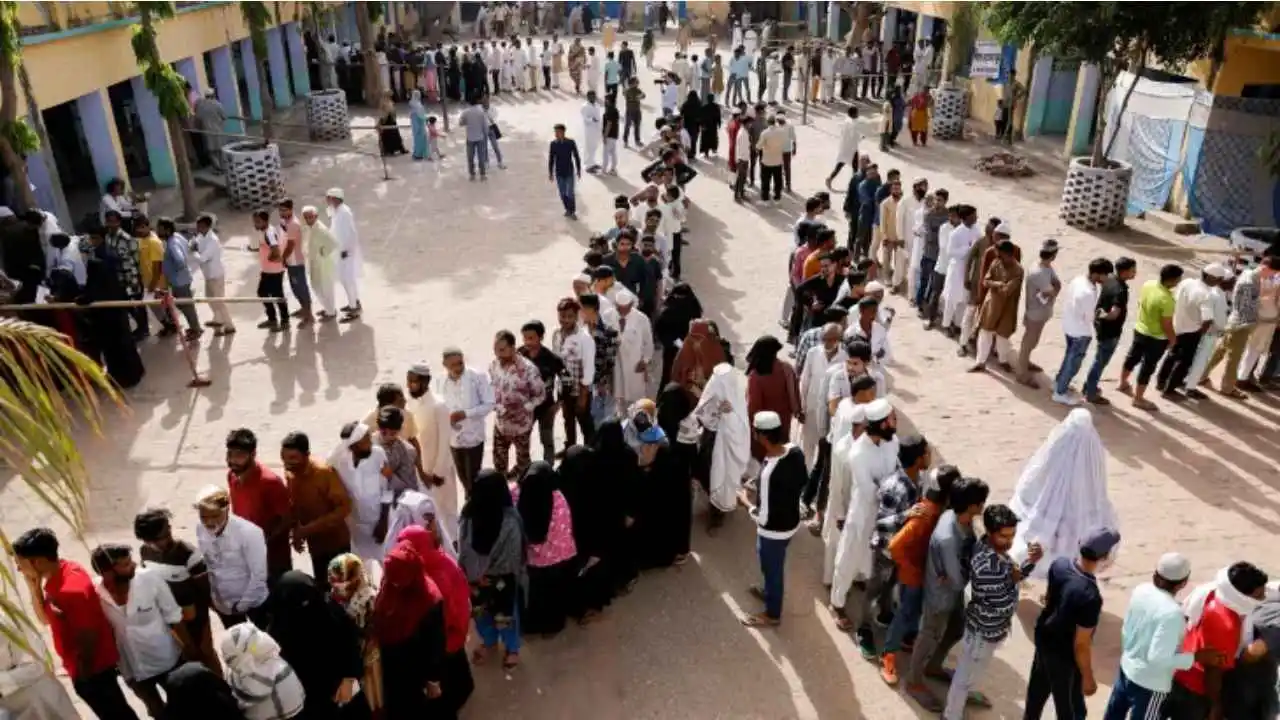
The Lok Sabha elections 2024 began today, marking the onset of the world’s largest electoral event. Voting ended in all 39 Lok Sabha constituencies in Tamil Nadu with a total voter turnout of 62.02%. State BJP chief and Coimbatore Lok Sabha constituency candidate K Annamalai said, they were getting complaints from a large number of voters that their names were missing from the voters’ list.
This incident happened in many places. Annamalai said they are demanding re-poll in places where the names of a large number of voters were missing.He said they had a doubt that there was some political interference because the names of a large number of BJP caders were missing from the voters list.
The voters in South Chennai showed lukewarm interest to participate in the election process and had a total voter turnout of 57.04% till 5pm. Although the overall percentage is poor, some areas like Thiruvanmiyur witnessed brisk polling from 7am onwards. Elderly, middle aged and young voters turned up and it was a family outing for many as they cast their vote.
Corporation volunteers assisted senior citizens with wheelchairs and guided them to their respective polling booths. The hot weather also had an impact on the polling as it reduced the voter turnout as many booths in the corporation school in MGR Nagar were seen deserted around noon. Senior citizens showed courage as they reached the polling booths in private vehicles to exercise their franchise.
Most of the polling booths had shamianas for voters so that they could wait in a queue. Some people even found refuge in the nearby buildings to save themselves from the scorching heat. The polling officials gave instructions to the voters to keep their phones switched off while they exercised their franchise. The security personnel at the polling booth also regulated traffic outside the polling booth in MGR Nagar.
2024 Lok Sabha Elections
Deserted by key supporters, the Kamal Nath story looks set to wind to an end in Chhindwara
Nath’s closest allies in his near 50-year reign—Deepak Saxena and Kamlesh Shah—have deserted him. His local team of corporators has also decided to jump ship leaving a gaping hole in Nath’s campaign trail.
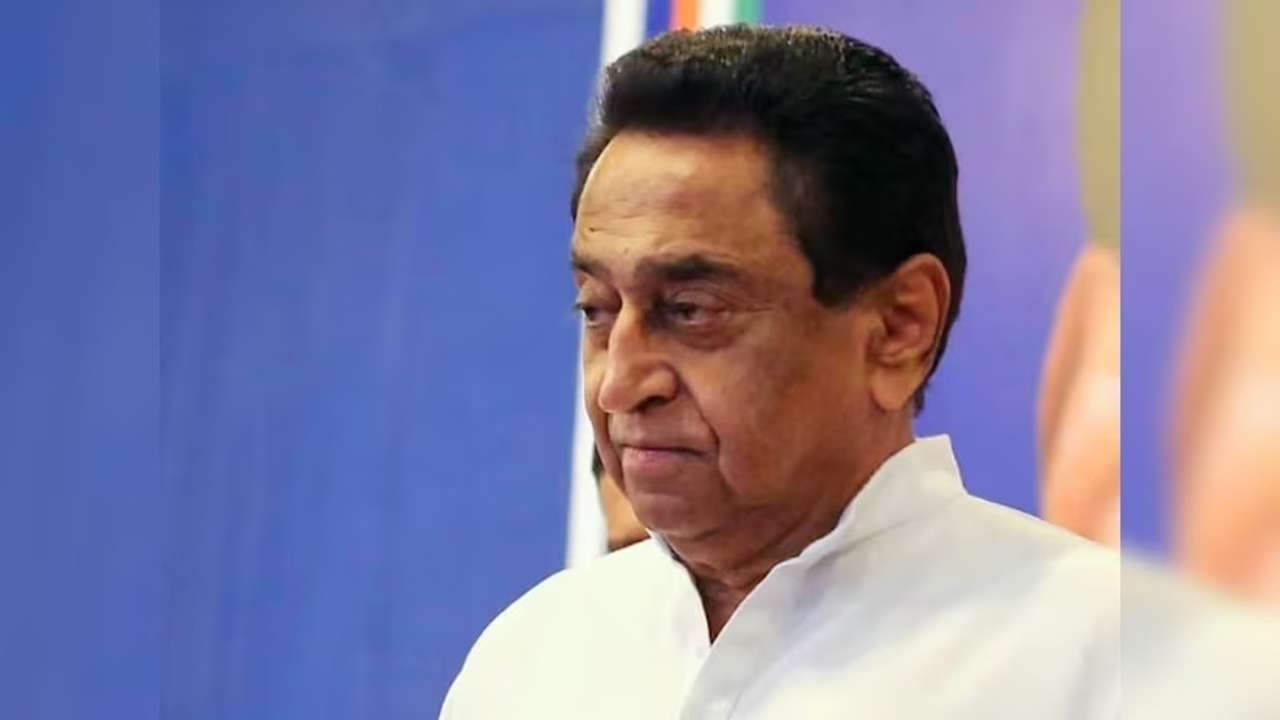
By Neeraj Mishra
The Congress has lost Chhindwara only once since Independence when the wily Sunderlal Patwa was sent there by Atal Bihari Vajpayee to test Kamal Nath’s hold on the constituency. Patwa won the 1997 by-election by a slim margin in the backdrop of Nath having forced his wife to first contest and later vacate the seat for him. Nath, however, returned to his winning ways the very next year and has won the seat nine times.
It seems possible that Chhindwara, the lone surviving Congress seat, will be lost again this time and may be forever. A day ahead of polling, the town was drowned in saffron. Not so much the effect of vigorous campaigning by Vivek Sahu of the BJP but the Ram Navami festival which brought out saffron flags on every rooftop. The effect is likely to last since the polling is today. At 77, Nath is unlikely to contest another election here and his son Nakul seems like a pale shadow of his father unable to even make a forceful speech. The days of running Chhindwara from Shikarpur kothi are gone.
Nath’s closest allies in his near 50-year reign—Deepak Saxena and Kamlesh Shah—have deserted him. His local team of corporators has also decided to jump ship leaving a gaping hole in Nath’s campaign trail. Nakul had won by a margin of 37,000 votes in 2019 and the biggest lead had come from Kamlesh’s Amarwada Assembly segment. With Saxena in control of Chhindwara and forced to show his strength in his new party, it is highly likely that Nakul will not be depending on these segments. Instead, the Congress campaign was focused on Pandhurna, Parasia and Chaurai.
Amit Shah was in the region a couple of days ago and warned all BJP workers—old and new—against lethargy. His message was clear, the BJP wants all 29 seats this time. Cabinet Minister Kailash Vijayvargiya is camped here and using all his political acumen for the desired results. One such tactic was to raid the Shikarpur Kothi of Kamal Nath for his assistant Miglani who handles almost everything for him. With Miglani temporarily neutralised, BJP is best placed to repeat its win in Chhindwara in 1997.
2024 Lok Sabha Elections
Lok Sabha Elections 2024: Nearly 40% voter turnout till 1pm
Chennai recorded an average voter turnout of 34% as of 1 pm on Friday. According data released by the Election Commission of India, Chennai (North) recorded 35%, Chennai (Central) recorded 32.3% and Chennai (South) recorded 34%.
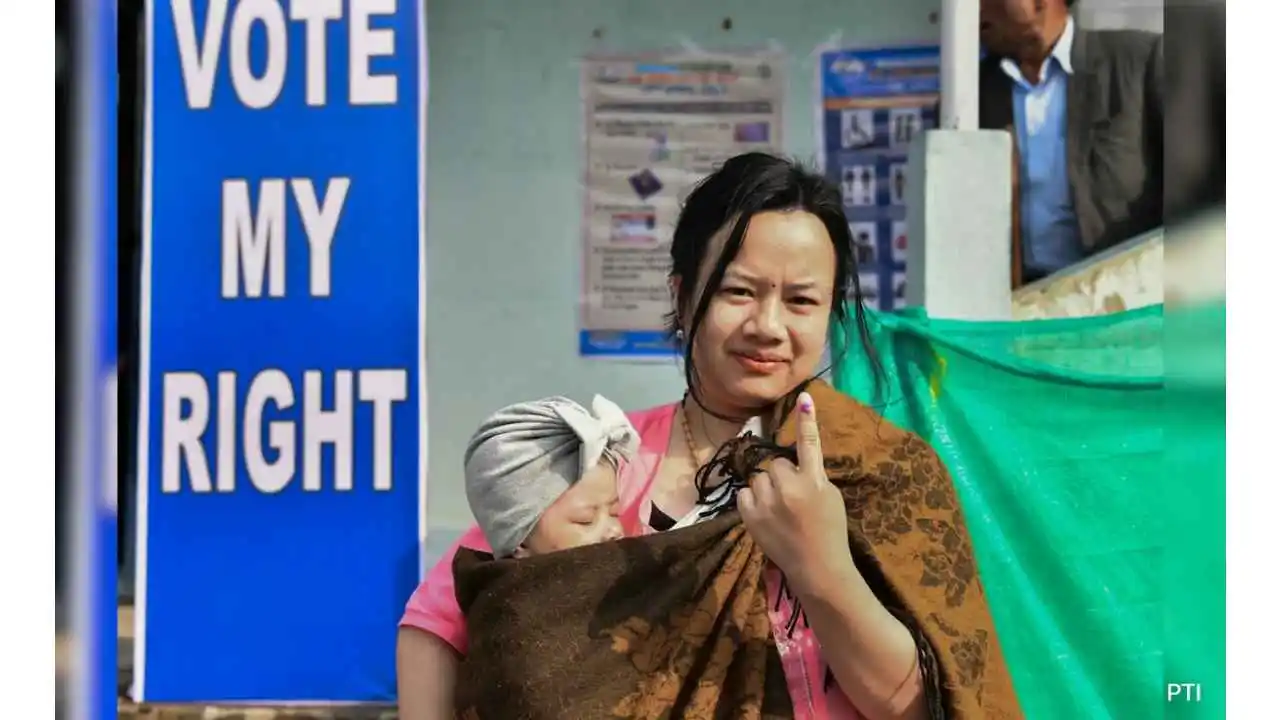
The first phase of voting for the 18th Lok Sabha elections started taking place in 21 states and Union territories on Friday. Nearly 40% voter turnout was recorded till 1pm across the states. Seats in Assam, Arunachal Pradesh, Chhattisgarh, Bihar, Maharashtra, Madhya Pradesh, Manipur, Mizoram, Meghalaya, Rajasthan, Nagaland, Tamil Nadu, Sikkim, Uttar Pradesh, Tripura, West Bengal, Uttarakhand, Jammu and Kashmir, Andaman and Nicobar Islands, Lakshadweep and Puducherry go to elections on Friday.
There has been a substantial increase in the voter turnout charts across the Northeast states, with Tripura leading at 53.04% until 1 pm, as per the data released by the Election Commission of India. Other northeast states like Manipur (46.92%) and Meghalaya (48.91%) are also witnessing high voter turnout. After Tripura, West Bengal is experiencing a high voter turnout of 50.96%.
Chennai recorded an average voter turnout of 34% as of 1 pm on Friday. According data released by the Election Commission of India, Chennai (North) recorded 35%, Chennai (Central) recorded 32.3% and Chennai (South) recorded 34%.
Over 33% voter turnout was recorded in the first 6 hours of voting on Friday in 12 parliamentary constituencies of Rajasthan. According to the Election Commission, voting started at 7 am amid tight security arrangements and 33.73 % voting took place till 1 pm. The highest voter turnout of 40.72 % was recorded in the Ganganagar Lok Sabha seat while Karauli-Dholpur saw the lowest turnout of 28.32 %. Jaipur recorded a poll percentage of 39.35 %.
Over 37 % voter turnout was recorded till 1 pm in the Lok Sabha election being held for five parliamentary constituencies in Uttarakhand on Friday. Elections began at 7 am and the five constituencies recorded an overall poll percentage of 37.33 % up to 1 pm. The Nainital-Udham Singh Nagar seat recorded the highest turnout of 40.46 %, followed by Haridwar with 39.41%, Pauri Garhwal with 36.60 %, Tehri Garhwal with 35.29 % and Almora with 32.29 %.
-
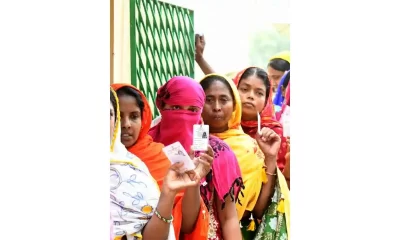
 2024 Lok Sabha Elections23 hours ago
2024 Lok Sabha Elections23 hours agoPrime Minister Narendra Modi urges citizens to vote in record numbers as voting for first phase of Lok Sabha elections begins on 102 seats across India
-

 Entertainment19 hours ago
Entertainment19 hours agoDo Aur Do Pyaar social media review: Social media users say Vidya Balan, Pratik Gandhi deliver standout performances in this adorable film
-
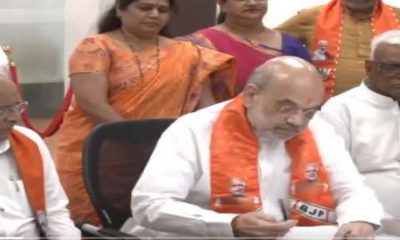
 2024 Lok Sabha Elections19 hours ago
2024 Lok Sabha Elections19 hours agoLok Sabha elections 2024: Amit Shah files nomination from Gandhinagar
-
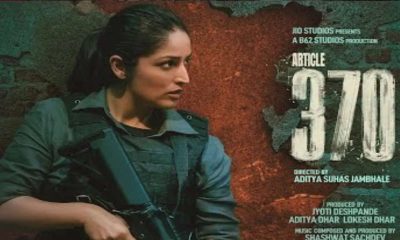
 Entertainment20 hours ago
Entertainment20 hours agoYami Gautam starrer Article 370 releases on Netflix today
-
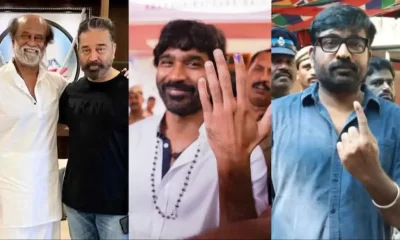
 2024 Lok Sabha Elections22 hours ago
2024 Lok Sabha Elections22 hours agoKamal Haasan, Rajinikanth, Vijay Sethupathi, Dhanush vote in Chennai
-
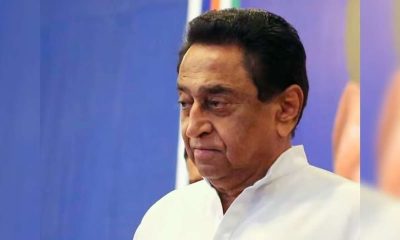
 2024 Lok Sabha Elections15 hours ago
2024 Lok Sabha Elections15 hours agoDeserted by key supporters, the Kamal Nath story looks set to wind to an end in Chhindwara
-
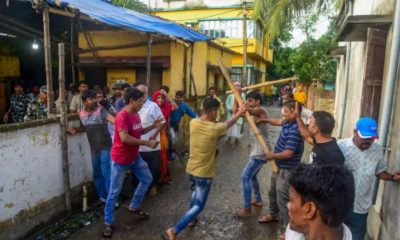
 2024 Lok Sabha Elections22 hours ago
2024 Lok Sabha Elections22 hours agoLok Sabha elections 2024: TMC, BJP workers clash in West Bengal’s Cooh Behar ahead of voting
-

 Entertainment17 hours ago
Entertainment17 hours agoAditya Roy Kapur, Sara Ali Khan’s Metro In Dino to release this November






